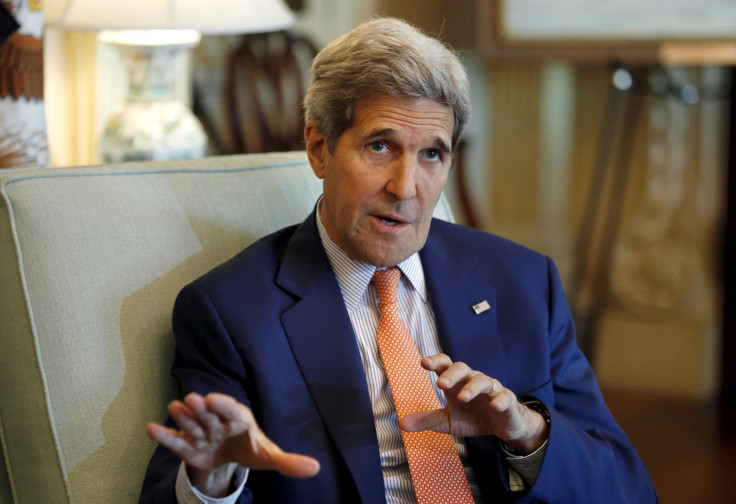Kerry Defends Contentious Iran Deal As Obama Seeks Congressional Approval

U.S. Secretary of State John Kerry mounted a defense of the administration's recent accord with Iran over its nuclear program as President Barack Obama sent the deal to Congress for approval Sunday. "The agreement we have reached, fully implemented, will bring insight and accountability to Iran's nuclear program," Kerry said on "Fox News Sunday," with Secretary of Energy Ernest Moniz at his side. "This is the good deal that we have sought."
The deal gives international authorities new license to monitor Iran's nuclear capabilities, while easing the sanctions currently in place against the regime in Tehran. Iran would be required to submit to periodic inspections of its nuclear facilities and abide by a raft of other stringent controls over the next quarter of a century.
But the deal leaves a controversial 24-day window before inspectors must be admitted. Hardline critics have demanded the U.S. be given immediate access to nuclear facilities.
Kerry defended the delay, arguing that "anytime, anywhere" inspections were never on the table. "In arms control, there is no country anywhere on this planet" that submits to such inspections, Kerry said on the Fox News program.
Obama has underlined the point, emphasizing the access U.S. and international inspectors would be granted. "This deal is not built on trust," Obama said this week. "It is built on verification."
But the agreement, hashed out between the U.S. and Iran with five other nations, has engendered harsh criticism by Republicans and some Middle East allies. Israeli Prime Minister Benjamin Netanyahu said on CBS News' "Face the Nation" Sunday that it was "dream deal" for Iran, giving the country "a cash bonanza to fund their terrorists and aggression against us, against the region, against America and the world."
The bad deal grants Iran 24 days notice before a site inspection. That's as absurd as giving drug dealers a 24-day notice before a lab raid.
— בנימין נתניהו (@netanyahu) July 15, 2015Iran's regional rival Saudi Arabia also lambasted the deal. Former Ambassor to the U.S. Bandar bin Sultan bin Abdulaziz al-Saud expressed his skepticism in a letter to the Washington Post: "This deal will wreak havoc in the Middle East, which is already a disastrous environment. Iran is a major player in the destabilization of the region."
However, arms experts have endorsed the agreement. On Vox, nuclear-weapons researcher Aaron Stein said: "It makes the possibility of Iran developing a nuclear weapon in the next 25 years extremely remote. It would require a Herculean effort of subterfuge and clandestine activity."
With the deal now in the hands of the Republican-dominated Congress, Obama has insisted he would veto any attempt to scuttle the pact. Republicans would need to cobble together a two-thirds majority in Congress to overcome a veto.
© Copyright IBTimes 2024. All rights reserved.






















